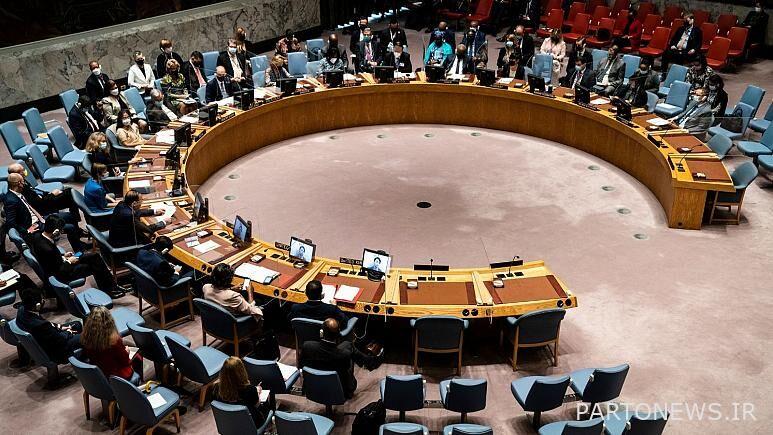Dispute between Russia and the United States over the ineffectiveness of UN sanctions

Russia, which holds the rotating presidency of the Security Council this February (February), has chosen to prevent the unintended humanitarian consequences of sanctions as its first priority, and has imposed unilateral sanctions on the United States, the European Union and other countries and groups Yesterday’s Security Council meeting was criticized.
Rosemary DiCarlo, the UN Under-Secretary-General for Political Affairs and Peace, told the meeting that there were 14 UN sanctions regimes: for example, they support conflict resolution in Libya, Mali, South Sudan and Yemen. . In Guinea-Bissau, the aim of these regimes is to prevent illegal changes of government. In the Central African Republic, Congo and Somalia, these sanctions regimes curb the illegal exploitation of natural resources that fund armed groups. In North Korea, they target proliferation activities and limit the terrorist threats of ISIL and al-Qaeda.
De Carlo said UN sanctions are no longer an effective tool, and since the 1990s, they have been amended to minimize the potential adverse consequences for civilians and third countries, and the Security Council has considered humanitarian exemptions in most sanctions regimes. And has introduced.
Dmitry Polyansky, Russia’s deputy ambassador to the United Nations, who chaired the meeting in the absence of Moscow’s ambassador and permanent representative to Corona, said many sanctions regimes are involved in state-building and economic development programs.
He called on the Central African Republic and Sudan to take action against Guinea-Bissau, saying the UN Security Council should pay more attention to the thinking of officials in the embargoed countries and be more realistic in setting criteria for lifting sanctions. To make sure that these sanctions do not become an impossible mission.
The Associated Press reported that Linda Thomas Greenfield, the US ambassador to the United Nations, responded to the remarks by claiming that sanctions were a powerful tool that would make it harder for terrorists to finance themselves through international financial systems and develop “certain capabilities” in Korea’s missile and nuclear programs. Has slowed the north.
The US ambassador to the UN claimed that the sanctions also limited the financial resources of those who disrupt peace processes, threaten UN peacekeepers, commit crimes and obstruct humanitarian aid.
James Karioki, the British Deputy Ambassador to the United Nations, also claimed that the effect of UN sanctions on Angola, Ivory Coast, Liberia and Sierra Leone had been proven. In these countries, the sanctions helped end the conflict and support the peace and democracy process, and were later lifted.
The British representative at the Security Council meeting claimed that in the Central African Republic, sanctions had improved the methods of a mining company. In Somalia, arms embargoes have allowed the seizure of thousands of bullets and ammunition, guided anti-tank missiles and sniper rifles that were reportedly sent to al-Shabaab.
Criticizing the sanctions imposed by countries or groups outside the UN, the Russian deputy ambassador pointed to the problems of contractors, transport companies, insurance companies and bank transactions, and described the sanctions as a serious obstacle to the full implementation of humanitarian exemptions.
He said Russia believed that only UN sanctions were “legitimate” and that the wider use of unilateral sanctions undermined international law norms and institutions.
Elsewhere in his remarks, Polyansky said that secondary sanctions by major Western powers have created a “toxic atmosphere” around North Korea that limits cooperation even in areas that do not include international restrictions.
He also referred to the war of sanctions against Syria, which has had a negative impact on the country’s economy, and referred to US sanctions against Cuba and Venezuela.
Zhang Joon, China’s ambassador to the United Nations, called the unilateral sanctions “very harmful” and expressed concern that a number of countries were imposing the sanctions insanely and seemed to be addicted to them.
He said: “These measures have hindered the work of economic and social development and scientific and technological progress of the target countries.”
Linda Thomas Greenfield, the US ambassador to the United Nations, whose country imposes the largest number of unilateral sanctions on countries that are not in line with its policies, responded by saying that the United States prefers multilateral sanctions, including in the Security Council.
The US ambassador claimed that Washington prefers multilateral sanctions, including in the Security Council.
In response to Russia’s claims that unilateral sanctions imposed by countries are illegal, he claimed: “The United States strongly rejects this position.”
The US ambassador to the United Nations has argued that when some members block sanctions against prominent terrorists and human rights violators, Washington and many other countries are prepared to use their currency and domestic financial systems as a means of restricting the activities of wrongdoers. Prevent nuclear proliferation, corruption and human rights abuses.
He made it clear that Washington fully supports its partners, regional organizations including the European Union, the African Union, which impose sanctions, and claimed that the sanctions are in response to threats.
Natalie Broadherst, France’s deputy ambassador to the United Nations, also claimed that EU sanctions were in line with international law and did not preclude humanitarian action.

